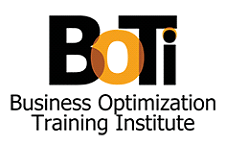Free Training & Career Tips... Subscribe to Get Weekly Career Tips

By Subscribing You are Agreeing to Terms and Conditions
Training legislation has been around since the mid-90s and is often considered as one of the many tax laws. However, training legislation is very important and offers lots of opportunities that are being overlooked by several employers.
Therefore, this article is specially curated to provide everything you need to know about training legislation in South Africa, especially the Skills Development Act. This article sheds more light on the key aspects and importance of training legislation, which includes the opportunities it offers.

The main purpose of the legislative framework for training and development in South Africa is to control, fund, and oversee the improvement of skills levels in South Africa in a structured way. A second broad goal is to regulate the standard of education/training. For these purposes, a National Qualification Framework (or “NQF”) was established.
The NQF is a framework that classifies the levels of occupational qualifications. It is designed so that people can choose from various options how they qualify for a career, and also carry training and experience over those qualifications. NQF also gives people a chance of obtaining recognized qualifications in education and employment.
The following legislative frameworks were created at different times to manage the training and development programs in South Africa:
This framework was created to provide for the development and implementation of a National Qualifications Framework and for this purpose to establish the South African Qualifications Authority (SAQA) and to provide for matters connected therewith.
This framework mainly deals with the conditions for employment in South Africa as regards the relationship between the employee and the employer. This Act was made to correct the exploitation and abuse of labourers in the domestic sector and to protect their rights, which are infringed upon by their employers.
The Broad-Based Black Economic Empowerment (BBBEE) Act provides the legislative framework for Broad-Based Black Economic Empowerment in South Africa. Its main purpose is to address the legacy of apartheid and promote the economic participation of black people in the South African economy.
Skills Development Act (Act 97 of 1998 as amended Act 37 of 2008)
This framework was aimed at improving the skills of workers by promoting education and training in the workplace. The Act also saw to the establishment of Sector Education and Training Authorities (SETAs).
The Skills Development Levies Act of 1999 is in support of the Skills Development Act. It was created to fund the skills development initiative in South Africa by ensuring that private companies also contribute to the development of skills development in South Africa.
Skills development training, referred to as learnership, is managed by the Sector Education and Training Authorities (SETAs). There are 21 of these SETAs and they all manage and oversee the registration of learnerships to meet the needs of skills development training across the sectors. These bodies also set out the basic requirements for the applicable learnership program.
Of all the legislative frameworks, the Skills Development Act is the most recent and the most concerned with skills training and development. The Act was created when the South African government realized that the short supply of skilled personnel is a serious obstacle to the competitiveness of industries.
The Skills Development Act was promulgated by the South African government in 1998 during the high levels of unemployment, low levels of investment in the South African labour market, pronounced disparities in income distribution and inequality of opportunity as a result of apartheid and poverty. The Act was made to support the further development of skills within the South African workforce. The Act encourages firms and places of work to become active learning environments and make provisions for ongoing education and skills development.
Through this Act, the government aimed to address two main priorities, which are:
The Skills Development Act aims at expanding the knowledge and competencies of the labor force to improve employment and productivity.
The aims of the Skills Development Act are:
It was hoped that the Act would help in addressing the issue of shortage of skills that the country was facing at the time.
It was expected that increased investment in skills development via the Skills Development Act would translate into greater returns on investment (ROI) for employers, while simultaneously generating a more competent workforce with improved future employment prospects.
Through providing access to further training and education in a controlled environment, the Skills Development Act sought to empower employees while enticing employers to participate with promises of increased profits.
The aims of the Act are to be achieved by establishing an institutional and financial framework called the National Skills Development Strategy. This is a framework for skills improvement created to:
This framework led to the establishment of different institutions, which included the National Skills Authority (NSA), the National Skills Fund (NSF), the Sector Education and Training Authorities (SETAs), and institutions in the Department of Labour.
The Act established the National Skills Authority on 12 April 1999. The functions of the NSA are to advise the Minister of Labour on the formulation of the national skills development policy and strategy, and on guidelines to implement the national skills development strategy. It also advises the Minister on the allocation of subsidies from the National Skills Fund (NSF). It reports to the Minister on the progress made in the implementation of the strategy. The NSA has to conduct investigations on any matter that arises out of the application of the Act. The NSA also liaises with the SETAs and reports progress on the implementation of skills plans to the Minister.
The National Skills Fund (NSF) funds projects that have been identified in the national skills development strategy as priority or other projects the Director-General sees as necessary to the achievement of the purposes of the Act.
SETAs have the function to monitor the quality of education and training in their sectors. They have to liaise with Employment Services, the NSA, and the provinces. A SETA must develop and implement a sector skills plan, within the national skills development strategy, by establishing sector workplace skills plans by means of the skills development grants. It has to promote learnerships by identifying workplaces for practical work experiences.
One of the functions of a SETA is to establish a learnership that has a structured learning program and a practical work experience of a specified nature and duration. The learnership must lead to a qualification that is recognized by the South African Qualifications Authority (SAQA). A SETA has to report to the Director-General of the Department of Labour on the implementation of its sector skills plans and its income and expenditure. The SETAs are financed for the levies collected from its sector and monies paid to it form the National Skills Fund.
While the Skills Development Act of 1998 as well as the Skills Development Levy Act of 1999 set the bar for focused skills development programs, SETAs were implemented to monitor skills development efforts and ensure that energies spent were in line with the overall Sector Skills Plans.
The Skills Development Levies Act of 1999 was launched to oversee the collection, administration, disbursement, and regulation of the monies in the Fund. This Act sees to it that there is money available to pay for the training of people as is stipulated by the Skills Development Act. This Act makes skills development training affordable.
The Skills Development Levies Act provides ways of making training affordable by:
This Act ensures that all employers in South Africa who are registered with the South African Revenue Services (SARS) and have an annual payroll of over R500,000 have to pay the skills development levy, which is usually 1% of the payroll, to the South African Revenue Services (SARS). SARS refers to this payment as the “leviable amount” and also gives clear guidelines on what amounts are included or excluded from the skills development levy.
However, not all organizations must pay the skills development levy (SDL). Some employers are exempted from paying a levy based on the following:
Application for an SDL exemption is contained in the SDL 101 form issued by the Commissioner of SARS. The Commissioner will finally decide whether an employer is qualified for an SDL exemption or not.
If a company is not exempted but fails to pay the SDL or any portion of the SDL at the appropriate time, which is not later than seven days after the end of every month, the company has defaulted and has to pay:
The levies paid by companies to SARS are deposited into a special fund from where 20% goes to the National Skills Fund, who will fund skills development projects that are not within the scope of the SETAs. The remaining 80% will be distributed to the relevant institutions and SETAs as follows:
If an organization is training employees already, such an organization must still pay the SDL. However, such an organization may be eligible for a grant. In the first year of the levy grant scheme, an organization can recover in grants a minimum of 50% of the SDL paid as long as it meets all the requirements for the different grants. The details of these requirements are issued by the appropriate SETA.
Originally the Skills Development Levies Act distinguished two types of grants to be paid to employers – the mandatory grants and the discretionary grants. Therefore, companies that pay their SDL can enjoy discretionary grants up from 10% to 20% and mandatory grants down from 60% to 50%. In total, a company can recover in grants up to 70% of the SDL paid.
Foremost all business organizations in South Africa must register with SARS. Business organizations that are interested in the mandatory training in South Africa must be registered and accredited as a workplace training provider with the appropriate Sector Education and Training Authority (SETA) in charge of the training.
Here are the requirements to become a SETA-accredited training provider:

The Skills Development Act was promulgated in response to the demand for equity and the need to redress the imbalances created by apartheid. It came into being to deal with the lack of skills amongst the unemployed people that made it hard for them to get employment. The Skills Development Act became an integral part of the national skills development strategy aimed to develop the skills of existing workers.
The Skills Development Act offers the following benefits:
Despite its many benefits, the Skills Development Act also has some negative impacts on the nation. Here are some of the negative impacts of the Skills Development Act.
This training legislation in South Africa affords all key stakeholders the platform and opportunity to participate in a meaningful way in the rebuilding of South Africa. Through this training legislation, a positive transformation can be made in the business sector.

Copyright text 2024 by Business Optimization Training Institute.